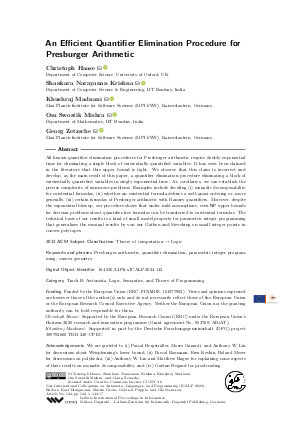LIPIcs.ICALP.2024.142.pdf
- Filesize: 0.9 MB
- 17 pages

 Creative Commons Attribution 4.0 International license
Creative Commons Attribution 4.0 International license






Feedback for Dagstuhl Publishing